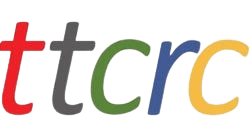TCS’ collaboration with TTCRC goes back a decade and continues to create a positive step change in cancer research and treatment. Focus has been around accelerating scientific data analysis, thereby expediting the
- identification of potential therapies, and enhancing precision medicine
- development of advanced algorithms facilitating personalized therapy,
- automation to optimize operational efficiency and
- real time collaboration solutions to enable seamless information exchange with global researchers.
Additionally, we have been partnering on several AI infused use cases in translational research. Overall, we believe our synergy amplifies the pace of discovery to advance the fight against cancer and improve patient outcomes.
Ongoing Projects
-
A. Enablement of clinical studies
i. TCS ADD® IDM: Clinical Trial Management Solution
TCS ADD® Integrated Data Management is a one-stop solution that caters to all needs of clinical trials including core electronic data capture (EDC) solution, terminology management, medical coding, non- case report form (non-CRF) data management and automated digital document generation.
The Icicle trial -- a prospective, risk stratified, randomized, multicentre, open label, controlled therapeutic trial -- runs on this platform. TCS teams also provide associated services to develop the clinical trial database. Our data analysts have been developing and generating reports to extract insights for research and regulatory purposes.
-
B. Personalized Diagnostics
TCS’ computational biology research capabilities enhance and augment biomarker discovery programs in TTCRC.
i. ALL - IKZF1 deleted subgroup characterization
We developed multiple approaches to analyse the data from the cohort with the 3 phenotypes. Our findings identified pathways that showed significant variations between the groups and could provide mechanistic understanding of the prognosis difference.
ii. RNAseq as a single assay for diagnosis
The variance in gene expression between different phenotypic groups being compared could be driven by different factors. Bulk RNAseq data generated for such studies is being explored as a single assay for better mechanistic understanding of these patterns observed.
-
C. Understanding Disease Biology
i. Differential gene expression analysis of TP53 knockout in ALL
The objective of the study was to understand the effect of knocking out TP53 in Acute Lymphoblastic Leukaemia (ALL) cell lines (NALM6 and RS411) and to analyse the differential response of TP53 knocked out cells as compared to wild type cells under stress conditions that provide them survival advantage.
-
D. Gall Bladder Cancer Organoids
Organoids are one of the best 3D representations of tissues in vitro, and our objective was to use transcriptomics to study how well the organoids established from gallbladder tissues from various pathologies could represent the source patient tissue. We interrogated the data in several ways. Clustering techniques were used to analyse the tissue and the organoid data. Copy number variation segments were also compared between the source and derived organoids in addition to SNVs and small Indels.
-
E. Predictive models based on histopathology and clinical data for aiding prognostication and interventions in Oral Cancer
We collaborate with the Department of Histopathology to develop AI/ML models that can be used to classify, estimate and predict disease progression and survival based on images of histopathology slides stained with hematoxylin and eosin (H&E) and clinical data from patients with Oral Squamous Cell Carcinoma (OSCC).
-
F. Translational Research Solutions
TCS brings its expertise in life sciences and healthcare solution building and advanced data analytics towards translational research and clinical decision support areas.
i. Adaptive Maintenance Therapy: ADAM Solution
ADAM is a clinical decision support solution to aid physicians in determining dose titrations for children undergoing maintenance treatment in Acute Lymphoblastic Leukemia.
ii. Image Analysis for Patient Cell Profiling
TCS is currently working with researchers from TTCRC to build an integrated pipeline for estimation of response to drugs. Such ML based image classification models can estimate live leukemia cell counts, which are used to determine EC50 and drug sensitivity scores (DSS) of each drug. The work is in progress to create an integrated pipeline from upload of image data to generation of plots and DSS.
iii. Translational Research Insights Service Model (TRISM)
TRISM professional services accelerate in-house translational research as well as establish a service model for sustainability by bringing together complementary capabilities of TMC/TTCRC and TCS. This enables convergence of life sciences and healthcare data to fuel new discoveries and cull actionable insights.


